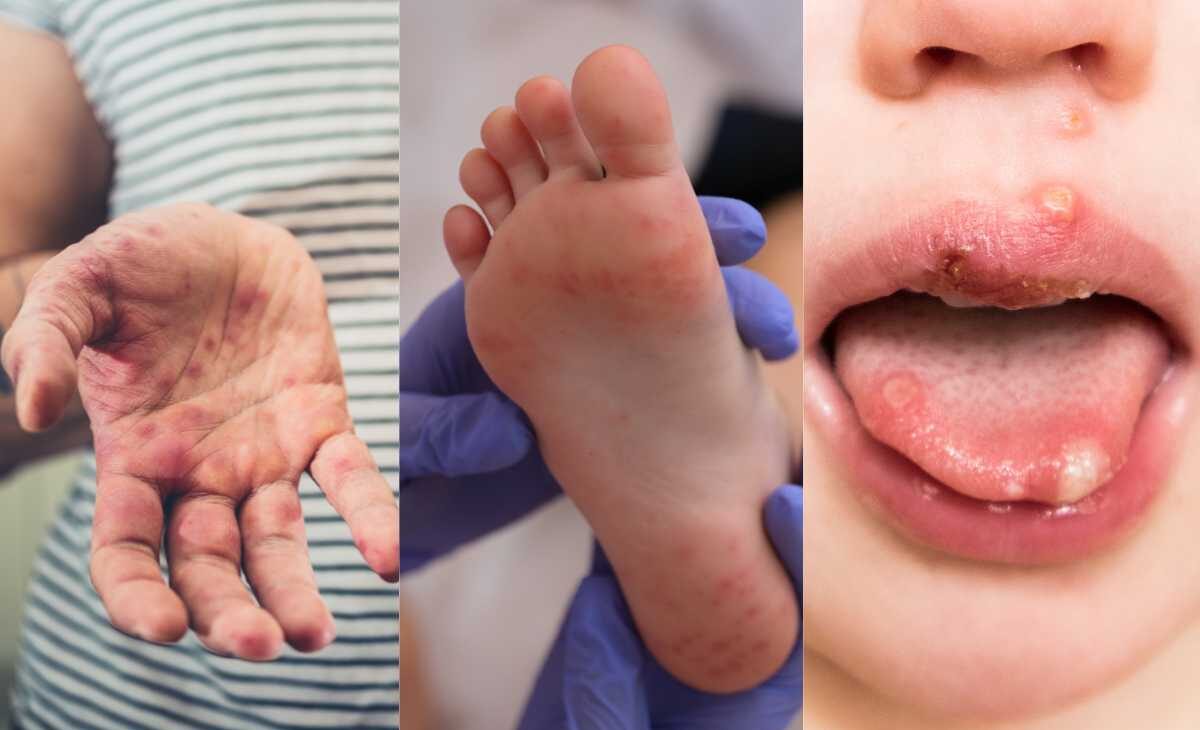Hand, Foot, and Mouth Disease (HFMD) is a common viral illness primarily affecting young children, although it can occur in adults as well. It is characterized by sores in the mouth, and a rash on the hands and feet. HFMD is typically caused by the coxsackievirus, which is highly contagious and spreads through close contact. Homeopathy offers a holistic approach to managing the symptoms and supporting the recovery process. By addressing the specific symptoms and overall well-being, homeopathic remedies can complement conventional treatments and provide relief from this uncomfortable condition.
Symptoms
HFMD presents with a range of symptoms, which can vary in severity:
- Fever: Often the first symptom, which may be mild to moderate.
- Mouth Sores: Painful sores or ulcers inside the mouth, including the tongue, gums, and inner cheeks.
- Rash: A rash on the hands, feet, and sometimes the buttocks, which may appear as red spots or small blisters.
- Sore Throat: Discomfort and pain in the throat.
- Loss of Appetite: Difficulty eating and drinking due to mouth sores and throat pain.
- Fatigue: General feeling of tiredness and malaise.
When to See a Doctor
Consult a healthcare provider if:
- Severe Symptoms: Symptoms are severe or worsening, especially if there is a high fever or difficulty swallowing.
- Persistent Symptoms: Symptoms persist for more than a week without improvement.
- Dehydration: Signs of dehydration, such as dry mouth, reduced urine output, or lethargy, occur.
- Complications: Symptoms such as severe headache, neck stiffness, or difficulty breathing develop, which may indicate complications.
Causes
HFMD is caused by viruses belonging to the enterovirus family, most commonly the coxsackievirus A16 and sometimes enterovirus 71. It spreads through:
- Direct Contact: Touching the skin lesions or blisters of an infected person.
- Respiratory Droplets: Inhaling droplets from coughs or sneezes of an infected person.
- Fecal-Oral Route: Contact with contaminated surfaces or hands after using the restroom.
- Contaminated Objects: Sharing utensils, toys, or other items contaminated with the virus.
Risk Factors
Certain factors can increase the risk of contracting HFMD:
- Age: Children under five years old are more susceptible, although older children and adults can also be affected.
- Close Contact: Children in daycare or preschool settings are at higher risk due to close contact with other children.
- Weakened Immune System: Individuals with weakened immune systems may be more vulnerable to infections.
- Seasonal Outbreaks: HFMD is more common in the summer and fall months.
Complications
While HFMD is generally mild, complications can occur, including:
- Dehydration: Due to difficulty eating and drinking from painful mouth sores.
- Secondary Infections: Bacterial infections can develop in the blisters or sores.
- Encephalitis: Rarely, the virus can cause inflammation of the brain, leading to severe symptoms such as headache, neck stiffness, and confusion.
- Nail Changes: Temporary changes in nail growth may occur in some cases.
Preventions
Preventive measures include:
- Good Hygiene: Regular handwashing with soap and water, especially after using the restroom and before eating.
- Avoiding Close Contact: Keeping children away from others who are infected.
- Disinfecting Surfaces: Regularly cleaning and disinfecting toys, surfaces, and other items that may be contaminated.
- Avoiding Sharing Items: Not sharing utensils, towels, or other personal items.
Diagnosis
Diagnosing HFMD involves:
- Medical History: Review of symptoms and exposure history.
- Physical Examination: Inspection of the rash and mouth sores.
- Laboratory Tests: Occasionally, tests may be conducted to identify the specific virus causing the illness, though these are not always necessary.
Treatments
Homeopathic remedies can support the management of HFMD by addressing symptoms and promoting recovery. Consult a homeopathic practitioner to determine the most appropriate remedies based on the specific symptoms and overall health.
Lifestyle and Home Remedies
Complementary lifestyle and home remedies can help manage symptoms and support recovery:
- Stay Hydrated: Encourage fluid intake to prevent dehydration. Offer water, clear broths, and oral rehydration solutions.
- Soft Foods: Provide soft, bland foods that are easy to swallow and gentle on the mouth sores.
- Cool Compresses: Apply cool compresses to the affected areas to soothe itching and discomfort.
- Rest: Ensure ample rest to support the body’s healing process.
- Maintain Hygiene: Practice good hygiene to prevent the spread of the virus and reduce the risk of secondary infections.
Preparing for Your Appointment
When preparing for an appointment with a healthcare provider or homeopathic practitioner, consider the following steps:
- Document Symptoms: Keep a record of symptoms, including their onset, duration, and any changes in severity.
- Review Exposure History: Note any recent contact with individuals who may have had HFMD or other illnesses.
- List Remedies: If using homeopathic remedies, make a list of any remedies used and their effects.
- Prepare Questions: Write down any questions or concerns about the condition, treatment options, and preventive measures.
- Involve Family: Consider involving a family member or caregiver to provide additional information and support during the appointment.
Homeopathic remedies offer a complementary approach to managing Hand, Foot, and Mouth Disease by addressing the specific symptoms and supporting overall well-being. By understanding the common remedies, preventive measures, and lifestyle adjustments, you can better manage the condition and promote a faster recovery. Always consult with a qualified healthcare provider or homeopathic practitioner to ensure appropriate treatment and guidance based on individual needs


